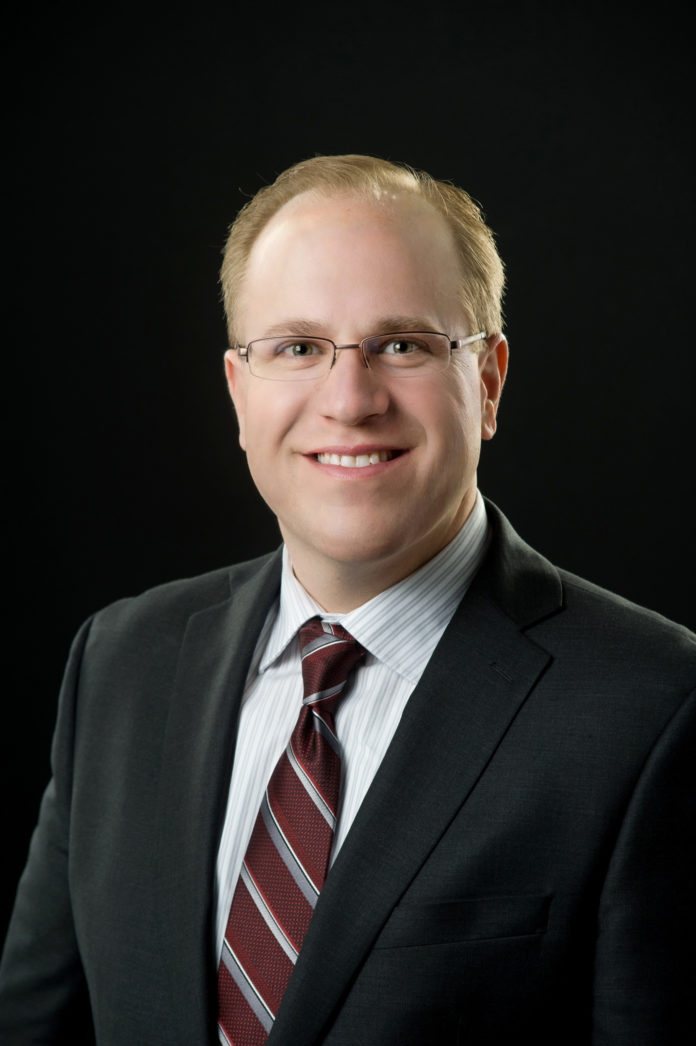
Kevin Robertson is a senior vice president and director of sales at HSA Bank, a subsidiary of Webster Bank NA. The bank recently released a white paper on a change made by the U.S. Department of Labor on the fiduciary standards and guidelines for investment advisers. Robertson talks with Providence Business News about those changes and how they’re affecting the industry and impacting the consumer-directed health care landscape.
PBN: What are the new DOL fiduciary standards and why do they exist?
ROBERTSON: The Department of Labor issued guidance in April; it was about five years in the making and was a top objective of the Obama administration. Originally, the fiduciary standards and guidelines were designed to curb “questionable” practices by investment advisers, really on retirement plans. The DOL sought to broaden the spectrum of what the rules were and what types of plans they impact. The rules focus on a couple of core areas including new or clarified definitions of several concepts like “fiduciary,” “investment advice” and “recommendations.” Additionally, the DOL has expanded the concept of fiduciary responsibility and for the first time is requiring a much broader spectrum of entities that were not previously considered to be fiduciaries and making them fiduciaries and ultimately saying what they have to do to comply with the guidelines.
PBN: Why do these new standards impact health savings accounts (HSAs)?
ROBERTSON: Because of the investment aspects and long-term saving aspects of HSAs and other similar products, the new regulations now extend to HSA accounts as well as pension and 401(k) plans.
PBN: What is the impact on employers, advisers and administrators as a result of these standards?
ROBERTSON: Like all regulations such as this, the rules say that you must comply but don’t necessarily identify how to comply. The reality is that employers’ relationships with both providers and participants fundamentally changes under the new regulations. Employers are going to have new responsibilities that they have not previously had and are going to be responsible for greater levels of oversight. Bottom line is for the first time, an employer’s responsibility toward their employees for both their retirement vehicles and health savings accounts changes. Not only do administrators have to comply, but employers now have the responsibility of managing and making sure their plans are compliant and the vendors they select and utilize are also compliant.
PBN: Is the Cadillac Tax still an issue for health plans?
ROBERTSON: The Cadillac Tax is a provision of the Affordable Care Act designed to help fund the expansion of insurance coverage and encourage employers to make their health plans more efficient. The tax has proven to be deeply unpopular among employers, unions and across the political spectrum. While the president signed a bill delaying the effective date from 2018 until 2020, and is considered welcome by most employers, it has not relieved the sense of uncertainty since the law remains in effect. Employers did win a minor concession in obtaining the ability to deduct the cost of the tax from revenue for tax purposes. The reason the Cadillac Tax is an issue is that the financial threshold that triggers the tax is too low and because of the differences between the cost and the way the levels index, the tax will eventually impact all health plans. President Obama’s recent budget proposal signals that the administration will consider other small changes, such as adjustments for regional differences in health care costs, but the current president is not likely to sign legislation repealing the tax altogether.
PBN: Give us some background on HSA Bank.
ROBERTSON: HSA Bank is one of the largest consumer-directed health care custodians in the United States, serving about 2 million customers with about $5 billion in health savings account assets. HSA Bank had early entrance into the HSA marketplace and has always been a leader in the consumer-directed health care landscape. We are located centrally in Wisconsin although our parent corporation, Webster Bank, is based in Connecticut.










